The St. Kitts Scenic Railway: The Last “Scenic” Railway in the West Indies
categories: caribbean travelMidway through our rail tour around St. Kitts, our carriage was rocking back and forth so much that I found it challenging to stand up to take a photograph. I wanted to go downstairs to see the interior coach, but I worried I would fall or slide on the stairway. Every minute there were beautiful scenic vistas to photograph, but every time I held up my camera, I was convinced that a sudden lurch would send my iPhone flying out of my hand into the cane fields of St. Kitts. A sudden jerk of the train had already caused me to spill my drink, and I was trying to find a comfortable way to sit without sliding off my seat.
It was at this time I realized that I was having the most fun I have ever experienced on a train ride. And if I have the chance to do it again, I would book a tour on the St. Kitts Scenic Railway in a minute.
I have had the opportunity to tour many Caribbean islands while cruising to various ports. I enjoy taking tours around the different islands to see the major scenic sights, but mostly I enjoy seeing the way people live. Most islands feature beautiful sandy beaches, adventure tours, snorkeling, scuba diving, exotic plants, animals, foods, and sometimes unique architecture. All of these things are greatly appreciated by me, but it is rare to find something that truly grabs my attention.
When I first heard about the St. Kitts Scenic Railway, I was intrigued by the idea of touring a Caribbean island by train. I enjoy heritage rail excursions whenever I have the opportunity. The idea of relaxing on a train and seeing the world go by is a joy I experienced from an early age when my grandparents would take me on scenic steam train excursions throughout the northeastern United States. The idea of seeing St. Kitts by rail brought back that feeling of excitement from my childhood.
My wife and I booked our passage on the St. Kitts Scenic Railway as a cruise ship excursion while on a tour of the Leeward Islands of the Lesser Antilles. We had stopped at six islands in six days, and Basseterre on St. Kitts was our last port before returning to Miami. We could have booked this rail excursion on our own, but we learned that passage on the train often sells out when cruise ships are in port.
Visitors have various options for the 30-mile perimeter rail tour around the island of St. Kitts. The option we chose began with an 18-mile counterclockwise train ride around St. Kitts followed by a 12-mile bus ride that returned to our cruise ship. Another option was to start with the 12-mile bus ride and then conclude with the 18-mile train ride clockwise around the island. A third option was to do the 18-mile train ride first and then return by catamaran to the cruise port in Basseterre. The train and bus options were about 3 hours long and the catamaran option was approximately 4 hours in duration. All routes provided a circular tour of the coastal plain region of the island.
The 18-mile St Kitts narrow gauge railway is sometimes referred to as the Sugar Train since it originated in 1912 as a way to bring sugar cane from the fields to a modern central processing plant in Basseterre. Before the building of the rail line, each sugar cane plantation on St. Kitts had its own processing plant. The combination of the railway and new centralized facility was seen as a way to reduce the cost of processing sugar cane in order to make the product more competitive with the new international sugar beet market.
Originally the rail line only operated seasonally during the sugar cane harvest from February to June. Eventually, the length of the rail network grew to bring in more outlying sugar estates throughout the island. The combination of the rail network and processing plant allowed St. Kitts to continue sugar production until 2005, much longer than most other Caribbean islands. The last Sugar Train was shut down on July 31, 2005, bringing an end to 350 years of continuous sugar production on the island of St. Kitts.
Townspeople and government officials on the island of St. Kitts were concerned about the closing of the Sugar Train and the loss of such a unique island attraction. Prior to the end of the commercial operation of the train, a partnership was developed between the government of St. Kitts and private enterprise to convert the Sugar Train to a privately owned tourist railway.
The first tourist excursions actually began on January 28, 2003, before the commercial operations ended. The continuity of rail operations helped to establish the legacy of the railway as a symbol of the history of St. Kitts. Train cars today display the national flag and the rail line is billed as the “Last Railway in the West Indies,” even though there are still operating trains in Jamaica, Martinique, Dominican Republic, and Cuba.
Today the railway operates three single-cab PKP (Polish State Railways) class Lyd2 narrow gauge diesel-hydraulic locomotives built by the 23 August Works company in Communist Romania. In 1990, that same company was privatized and renamed FAUR. The passenger cars are specially designed “Island Series” double-decked railcars manufactured by the Colorado Railcar Company.
Each coach is a miniature version of a domed railway passenger car except that the glass has been replaced by a canopy covering. The lower-level air-conditioned parlor cars are decorated with paintings by local artists and have 6-foot windows, cushioned rattan chairs, and tables. Everything about the St. Kitts Railway was designed to create a unique journey that reflects the history and culture of St. Kitts.
- Search for Great Tours HERE
- Get an eSim to be able to use your smartphone abroad.
- Get a Car Rental
- Get a universal plug adapter
- Book Your Accommodation HERE
- Buy Travel Insurance
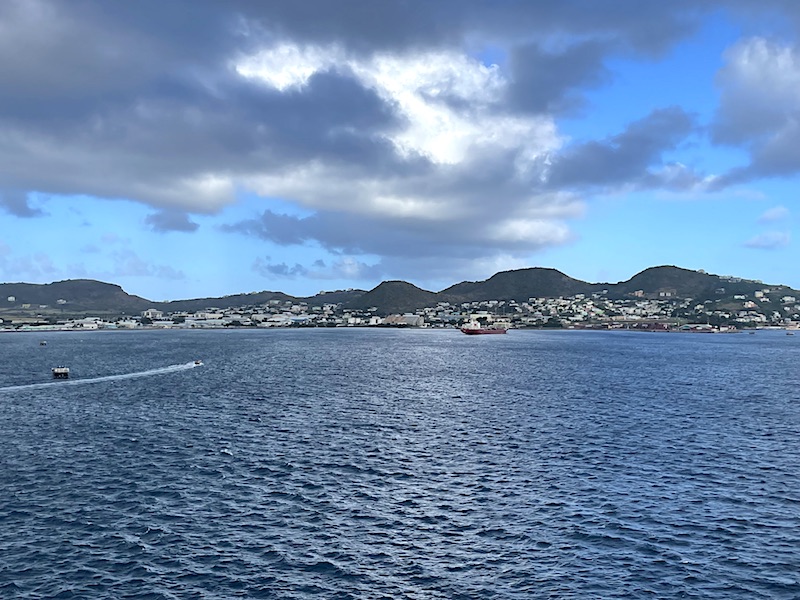
Our journey started with a 10-minute bus ride from our cruise ship in Basseterre to the train depot at Needsmust Station. When we arrived, there was a fair amount of disorder in getting onto a train car because the excursion was due to leave very soon. We were quickly assigned a double-decked passenger car in the middle of the train. Onboard, we had the choice to ride in either the ground-level air-conditioned parlor car or head to the top for an open-air seat that provided 360 degrees of unobstructed viewing.
Since the second-story open-air cars were covered with a canopy to block out the strong tropical sun, we opted for the fresh air outdoor seating and made our way up a spiral staircase. Seating was not assigned, so we quickly chose to sit opposite our friends on the side of the train that would face the Atlantic Ocean and the Caribbean Sea. Within a matter of a few minutes, our train departed.
After leaving the railway’s operational center at Needsmust Station, we passed the ticketing center, administrative offices, mechanical workshops, and inspection stations needed to maintain the railway. The first thing we noticed was that the train traveled slowly. It also creaked and swayed back and forth. All of us looked at each other in a way that displayed the thought, “What did we get ourselves into?”
It took a while to get comfortable with the swaying motion of the train, but eventually, I felt comfortable getting up and walking around a little to take photographs. I always tried to grip my camera phone a little tighter and many times I passed on a photograph because I felt there was too much risk of the train lurching and my phone flying away from my fingers. The bouncing and swaying were countered by the fact that the route was amazingly scenic and beautiful.
The land side of the train had incredible vistas of abandoned sugar cane fields that rose up to dense rain forests and the volcanic cone of Mt. Liamuigainto. The coastal side of the train often hugged the northeastern coastline and provided spectacular vistas of neighboring islands, coastal vegetation, the Atlantic Ocean, untamed surf, abrupt cliffs, and sandy beach areas. Along the way, the train crossed over multiple metal bridges that spanned coastal runoff ravines, known locally as “ghuts.”
Every turn and change of elevation provided new vistas and sights to admire. We saw abandoned processing plants, agricultural windmills, and chimney stacks from former sugar cane estates. We passed by St. Paul’s Village which was the home of Robert Llewellyn Bradshaw, St. Kitts first national hero. Another major highlight we viewed was the neighboring island of Nevis where Alexander Hamilton was born. Occasionally, the train even traveled through a little village or farm where locals waved at us as we rode by.
Along our route, attendants provided each passenger with drinks such as rum punch, frozen daiquiris, fruit juices, and soft drinks. Everyone was also treated to a spiced sugar cane candy treat. We listened to an informative presentation on the history of St. Kitts by our tour director who provided detailed narration along the route and pointed out scenic and historical sites. A highlight of the trip was two entertainment performances by dancers and singers who presented native dance and folk songs. It was amazing to us how the performers were able to dance on the rocking and moving train.
After a journey that took a little over two hours, our train slowly glided into a remote turnaround location called La Vallee Siding in the northwest part of the island. Here we found buses waiting for us to finish our tour and eager train passengers who boarded to take the return trip along the same route back to Needsmust Station.
Originally the St. Kitts Scenic Railway was a complete circular trip around the island, but the 4-hour ride proved to be too long for most passengers and the more populated cities and coastal vistas were better viewed by bus. The abandoned section of the railway was directed toward the inward area of the island as it approached the cities. Some of the tracks can still be seen today, but much of it has become overgrown and abandoned.
The remaining 12 miles of our tour were by bus along the coastal road back to Basseterre. The coach ride was equally scenic and went through many coastal towns of the island such as New Guinea, Half Way Tree, Old Road Town, Challengers, Boyd’s, and Trinity. Along the way, we saw modern St. Kitts and the Caribbean shore area of the island. We finished with a downtown tour of Basseterre and returned to the cruise ship pier.
What I appreciated the most about the St. Kitts Scenic Railway was the preservation and repurposing of this significant part of the island’s history to provide visitors with a unique way to see the natural beauty of this country. Most islands in the Caribbean offer numerous nature, beach, and adventure activities. Almost every island has a scenic and historical tour by bus, but only St. Kitts offers an extensive sightseeing experience by train.
The St. Kitts Scenic Railway is a unique Caribbean attraction that is both historical and scenic. If it is your first trip to St. Kitts consider the Scenic Railway as an introduction to the island. Beach and boating adventures will be available the next time you visit as well as on every other island in the Caribbean. It is only on St. Kitts where you can truly experience the Last “Scenic” Railway in the West Indies.

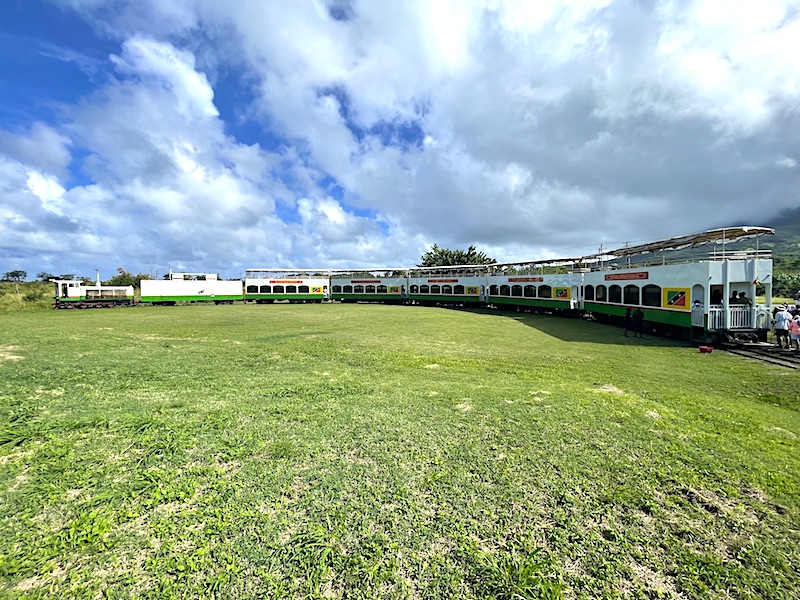
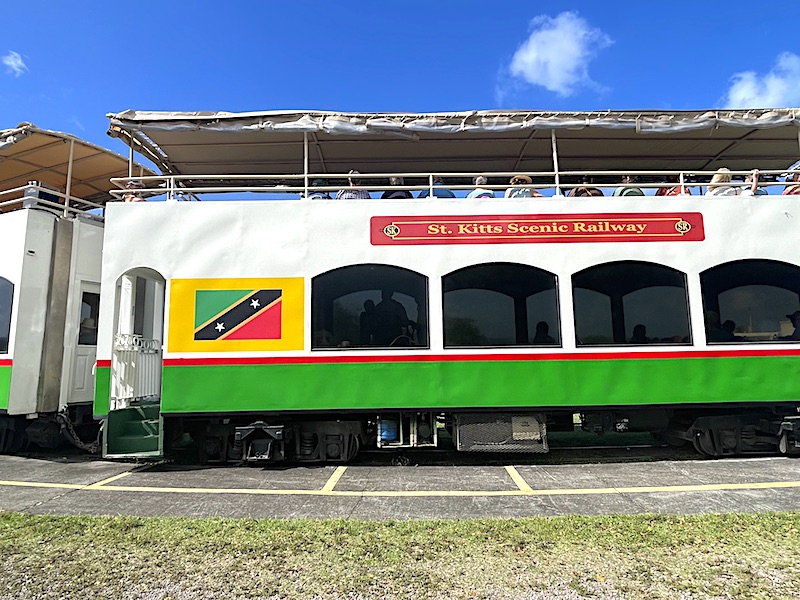
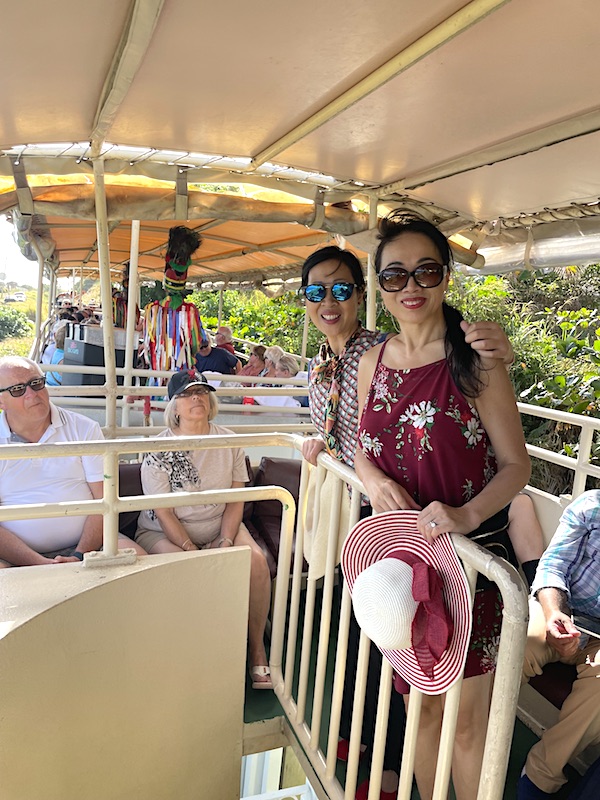
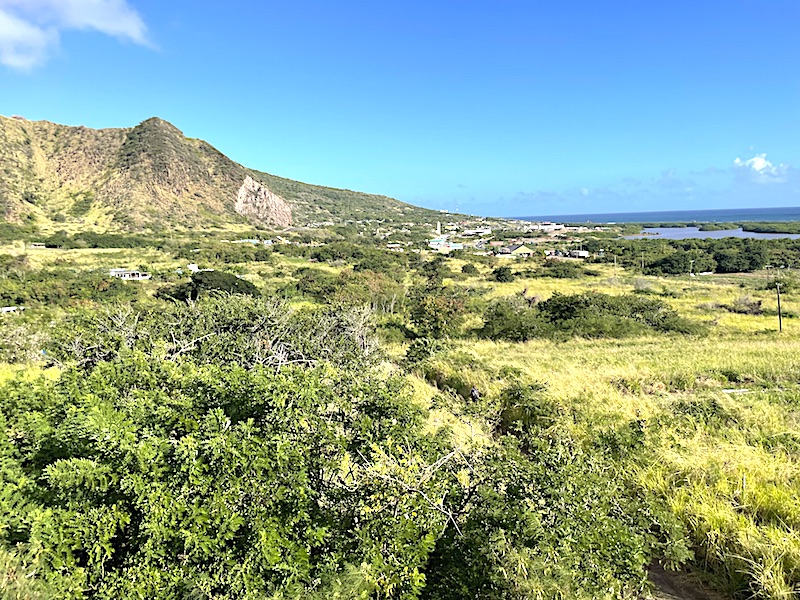
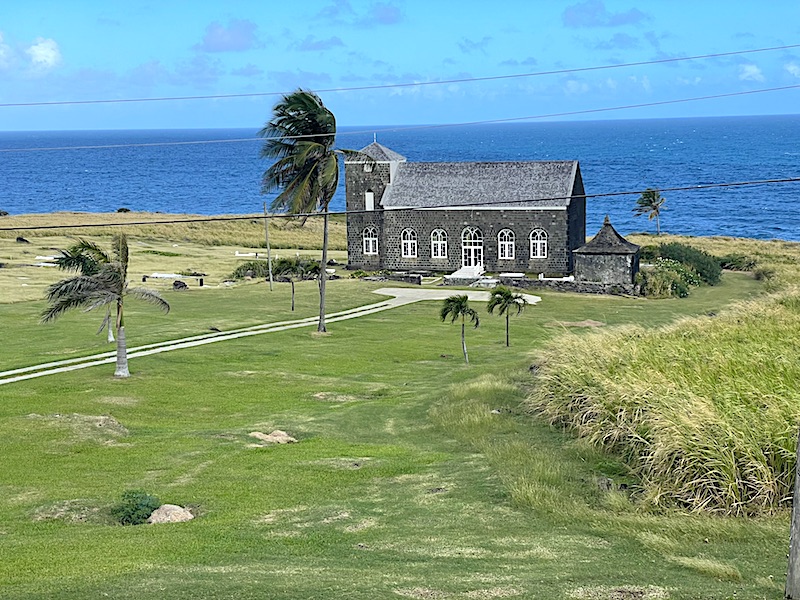
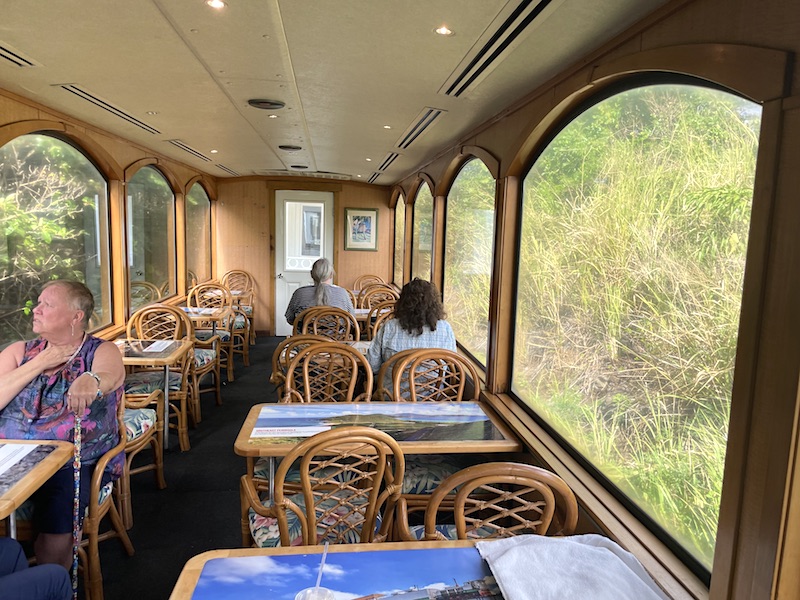
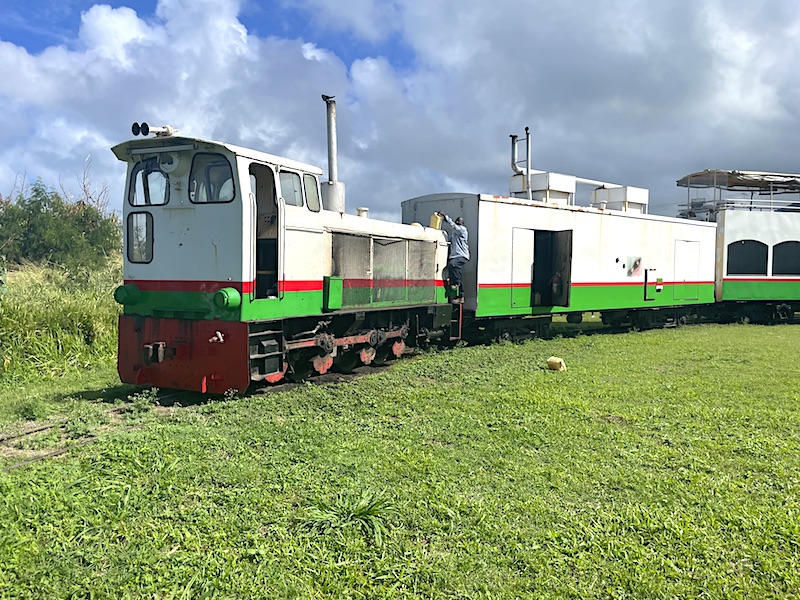
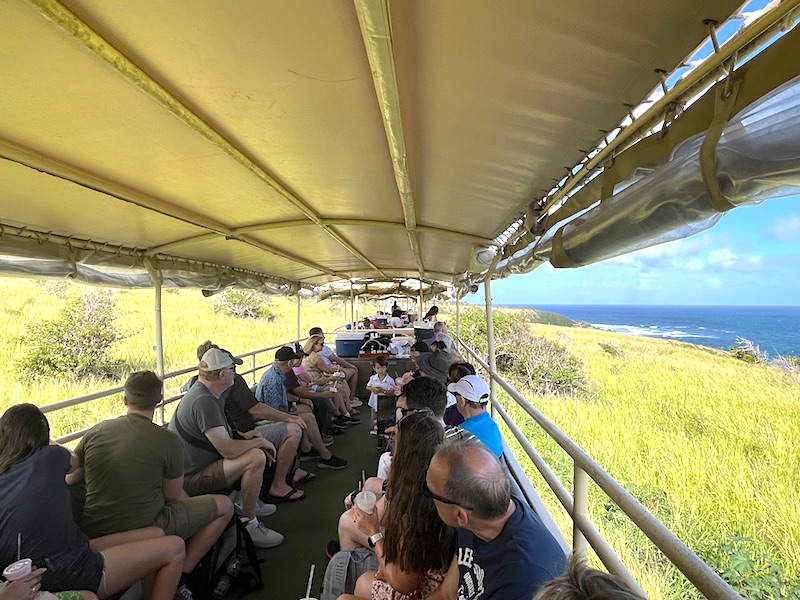
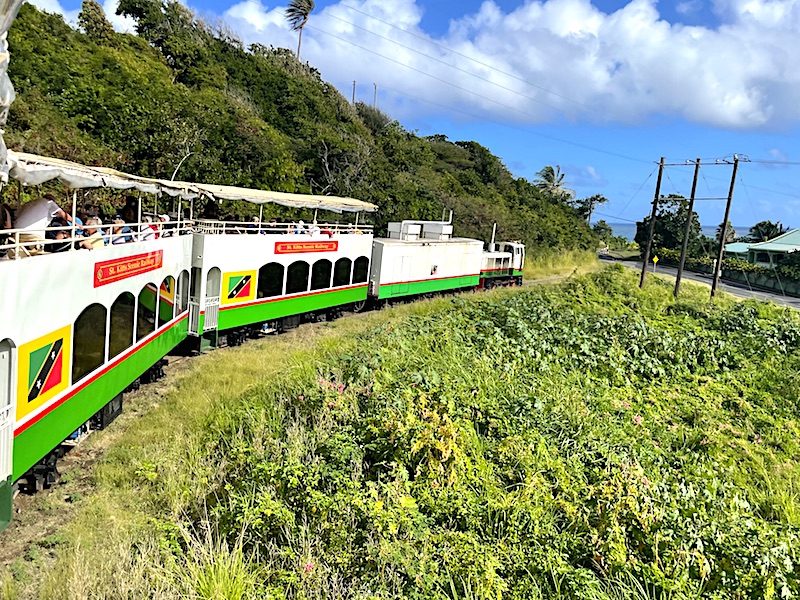
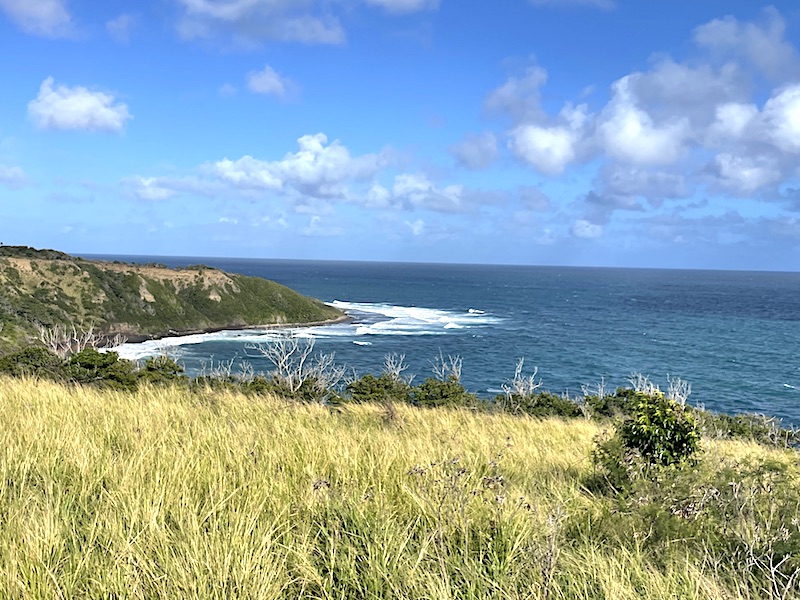
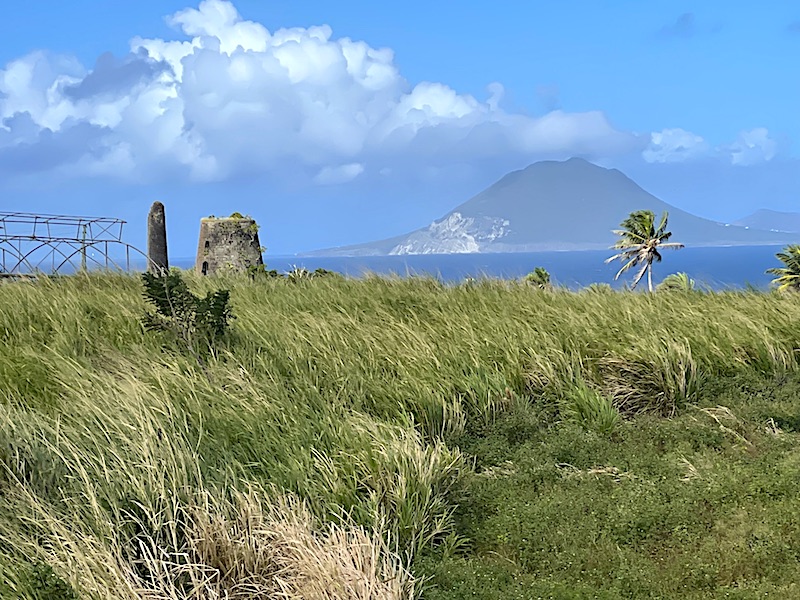
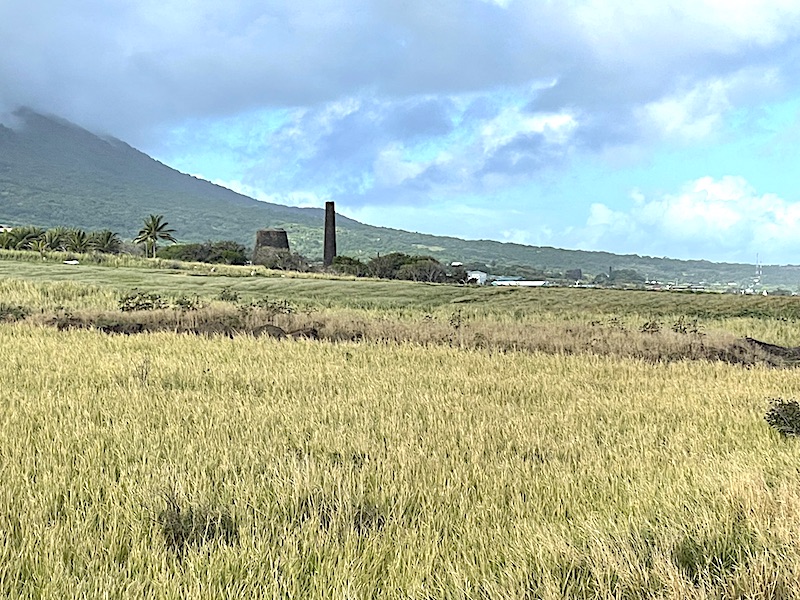
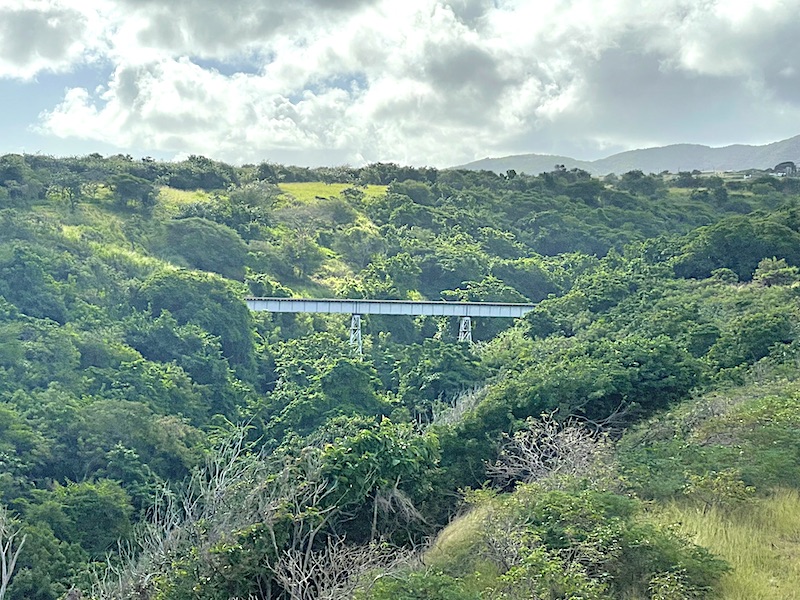
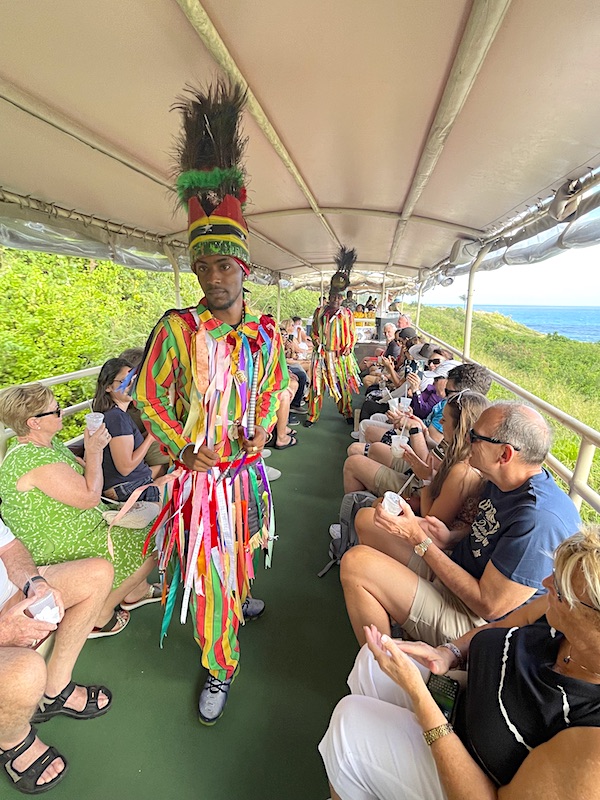
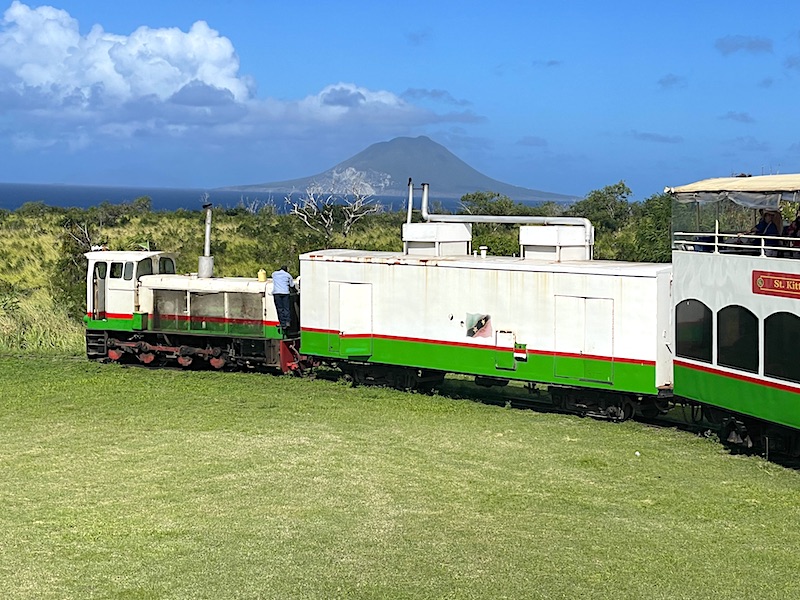
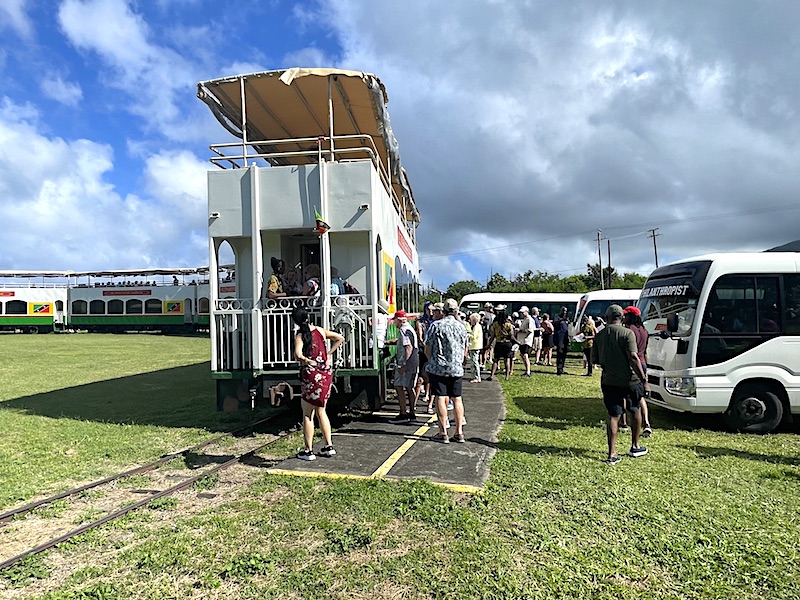
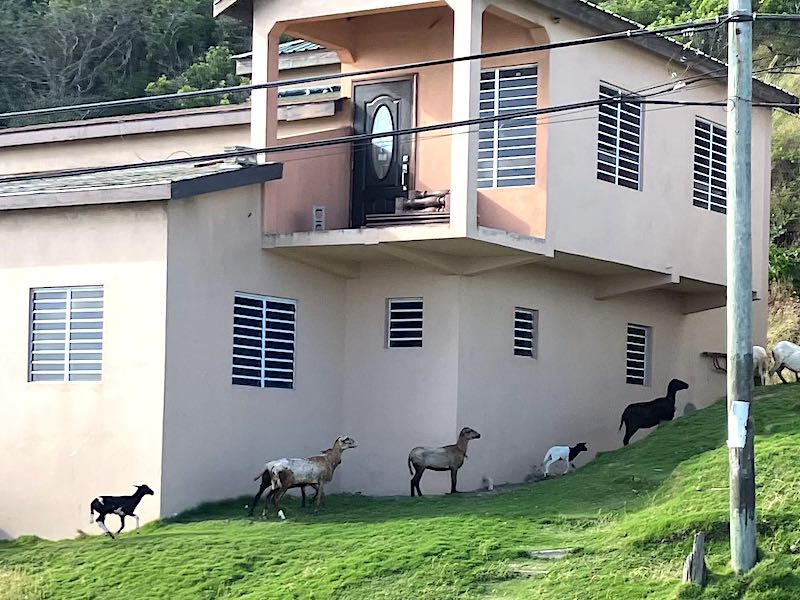

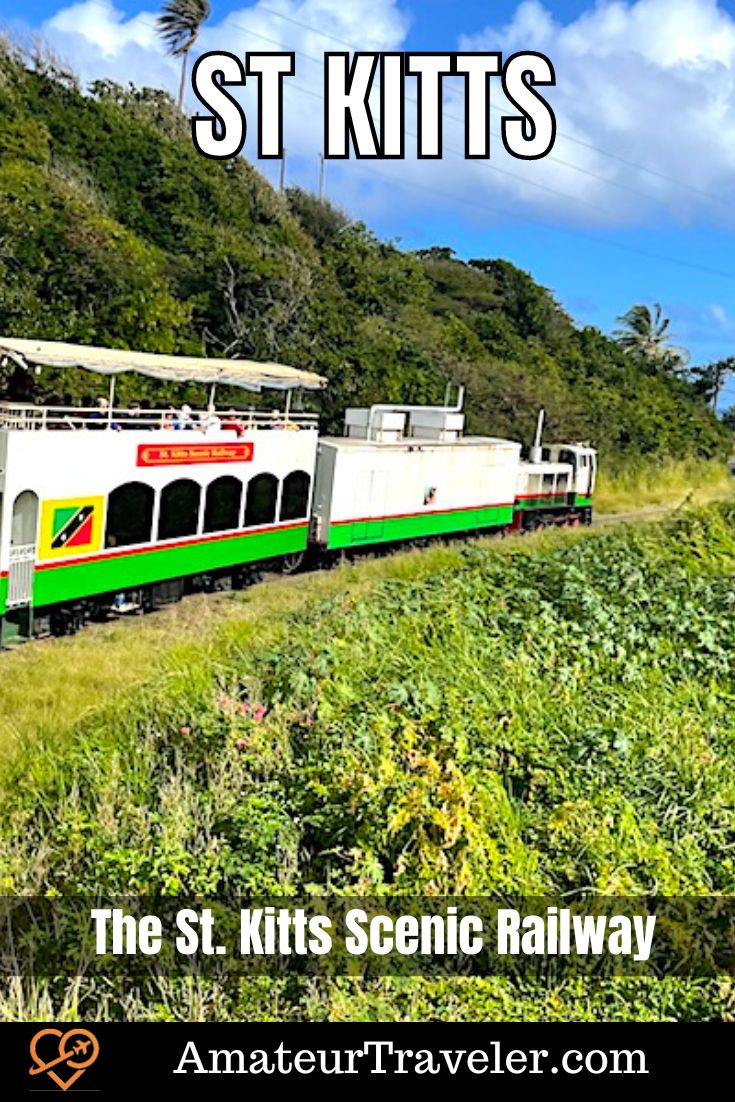
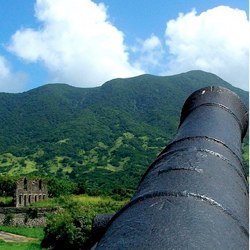 Travel to St. Kitts – Episode 303
Travel to St. Kitts – Episode 303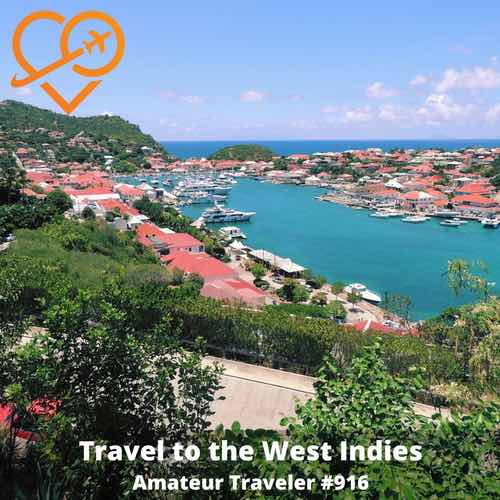 Travel to the West Indies – Episode 916
Travel to the West Indies – Episode 916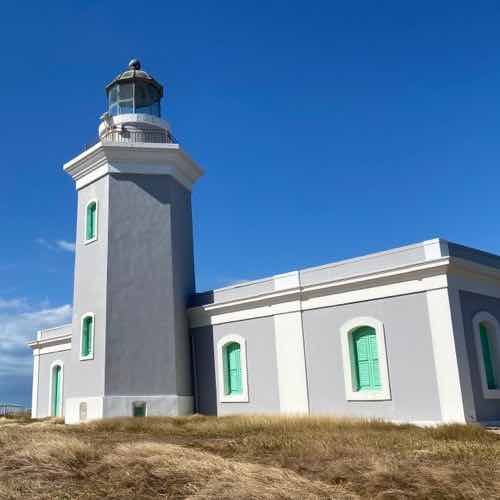 12 Best Things To Do On Puerto Rico’s West Coast
12 Best Things To Do On Puerto Rico’s West Coast Should Cruise Ships Go To Haiti? In Defense of Royal Caribbean
Should Cruise Ships Go To Haiti? In Defense of Royal Caribbean
